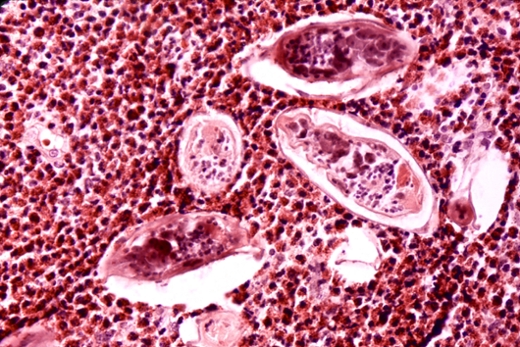Investigators at Emory University's Rollins School of Public Health and University of South Florida’s (USF) College of Arts and Sciences have received a five-year, $2.5 million research grant from the Fogarty International Center to study the interaction between infectious disease transmission and agricultural practices in the Senegal River Basin.
"Together, infectious diseases of poverty and the need to sustainably feed nine billion people in the next 50 years represent two of the most formidable ecological and public health challenges of the 21st century," says Justin Remais, PhD, associate professor of environmental health. Remais is co-principal investigator of the new project with Jason Rohr, associate professor of integrative biology at USF.
"Identifying sustainable approaches to increasing agricultural productivity, without increasing the risk of infectious disease transmission, will be essential to improving both global public health and environmental quality," Remais adds.
Agriculture is rapidly expanding and intensifying in tropical developing countries, and this is precisely where the risk of parasitic disease emergence is greatest, and also where disease surveillance, particularly for neglected tropical diseases (NTDs), is limited. Remais and Rohr study the parasites that cause human schistosomiasis, an NTD that affects more than 200 million people globally. The investigators’ preliminary research indicates that environmental changes, including agricultural expansion and intensification, can affect the transmission of the parasitic flatworm that causes schistosomiasis.
People with schistosomiasis infections can experience anemia, impaired growth and development, and in some cases, fibrosis of the liver and bladder cancer. The global health impacts of the disease are substantial, disproportionately impact the global poor, and strongly reinforce poverty in tropical and subtropical areas of South America, Africa, and Asia. Yet the linkage between agricultural practices—particularly the use of herbicides, insecticides and fertilizers—and the transmission of schistosomiasis in endemic areas is poorly understood.
"We need experimental studies that examine the fundamental sensitivity of parasite transmission to agricultural chemicals, and we then need models that can use this information to devise strategies to minimize schistosomiasis risk in diverse agricultural settings," says Remais.
"The work will simultaneously enhance our ability to predict and control schistosomiasis, while offering opportunities to promote public health, agricultural and ecosystem health, and economic development," says Rohr. "The new NIH Fogarty project will provide unique, international research opportunities for domestic and global students and trainees on sustainable agriculture, water quality and infectious diseases."
"Our results will improve decision-making for environmental management at the interface between sustainable agriculture and human disease control in a region with limited resources and significant under nutrition and infectious disease," Remais adds. "This project will provide a model for how transdisciplinary, international research on the ecology and epidemiology of infectious diseases can improve global health."

